The Levins were a wealthy Jewish family from Berlin. Ernst was born in 1887 to Natalie and Willy Levin, who were incredibly prominent in the avant-garde arts’ scene at the turn of the century in Berlin. Ernst’s older brother Kurt, who would also eventually emigrate to the UK, also served in the First World War: some of his correspondence survives. His younger brother Walter Levin came to a tragic end after contracting Polio in Israel, which is described in detail in the post ‘The Israel Family Branch’.
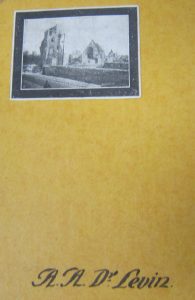
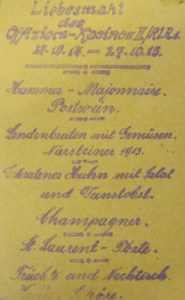
Ernst later attempted to recover his mother’s property and wealth, which was unfairly taxed by the Nazi regime. In letters to his lawyer handling the case, he gives detailed accounts of his childhood in the Levin household in order to confirm their level of wealth.
*************************
Letter to lawyer Karl Leonhard on Ernst’s youth in the Levin household
Ernst describes his youth, childhood home and parents in a letter to the Berlin-based lawyer Karl Leonhard, to support the evaluation of his mother’s jewellery. This letter allows insight into the decadent lifestyle of the wealthy Jewish family in Berlin and his parents’ affinity to the arts. As a child Ernst was exposed to prominent artistic circles, to which famous composer Richard Strauss belonged, as a result of his parents’ connections.
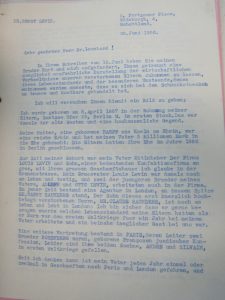
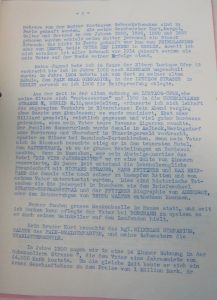
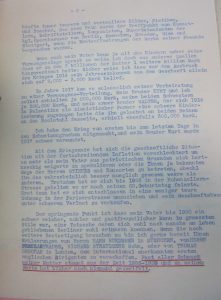
28th June 1956:
“You requested that my brother Kurt and I separately write you a summary of our parents to get an idea of their standard of living and circumstances, in order to determine that the jewellery [of Natalie Levin] is expensive and rare.
I will try and build a picture of our life for you:
I was born on the 8th April 1887 in my parents’ flat in Berlin. At the time, this was the West and a very affluent area.
My mother, maiden name Harff and born in Cologne on the Rhine, was a rich heiress and brought 3 million Marks to the marriage with my father: they married in 1886 in Berlin.
At the time of my birth my father was a co-owner of the company ‘Louis Levin and sons’, a famous sweets company, with their biggest factory on Kronenstrasse. My grandfather Louis Levin was still living and active then, and two of my father’s younger brothers, Adolph and Otto Levin, also worked in the company. [gives details of friends and employees who would confirm this lifestyle approximation].
My father went to shops in Paris and London every year, and several of Mother’s expensive jewellery pieces were bought in Paris. Siblings Kurt, Margot, Walter and Gertrud born in the years 1888, 1889, 1890 and 1893, and with every child my mother received another piece of jewellery. As far as I can tell, all the jewellery was bought prior to 1914, whilst my father was still at the height of his success.
I spent my youth in this apartment in Berlin, moving once in 1900 to Eisenbach but returning in 1904 to my school ‘Falk Real Gymnasium’ in Berlin, sitting the final examinations in 1906.
… The house was constantly full of people, there was never an evening without dinner guests, music was played, billiards played, feasts laid out and much Bordeaux was consumed, which my father enjoyed alongside expensive Havanna[sic.] cigarettes. Family summer holidays were spent in Aalbeck or Heringsdorf. When my father stayed in Munich, he stayed at the Hotel of the Four Seasons where he reserved a suite of rooms. At this time I began life-long friendships with Richard Strauss, Hans Pfitzner and Max Reinhardt, who were all struggling at the time and were supported by my father.
Masked balls were sometimes held at the house, and my father kept a large wine cellar … In 1900 we moved to a 24 room apartment which cost 44 000 Marks a month. At the same time, my father built a new factory which cost 1 million Marks. He bought progressively more expensive and valuable paintings and books. This new home became the centre of contact between artists, writers, composers and superintendents.
Even though my father never discussed in detail his finances with me, I know from other sources that he earned a further 1 million Marks to mother’s 3 million.
… In the year 1917 with my marriage came a division of the wealth. My brother Kurt and I both got 200 000 marks, the two sisters 300 000 marks each and my poor brother Walter, who in Palestine 1914 as a Zionist farmer had an accident which confined him to a wheelchair, also got 300 000. I was in the war from the first day to the last, and my brother was heavily injured in 1917. My father suffered with the economic inflation, but managed to support himself in the apartment, where he celebrated his sixtieth birthday, until 1926, when he decided to move somewhere less expensive, and reluctantly sell one of his factories.
The central point is that my father until 1920 was a very rich, noble and hospitable gentleman of exemplary character. [underlined in red] Nearly all of my mother’s jewellery comes from 1886-1920 and as of yet, no one has valued it.”
************************************
Letter from lawyer Karl Leonhard detailing the reclamation of taxes on Jews for Natalie Levin
Under Hitler, as part of their progressively more drastic persecution, Jews were forced to pay special taxes to the state. These were later re-paid in compensation to Jewish refugees and survivors of the Holocaust, as part of the war reparations demanded of defeated Germany. Often property, land and wealth had been confiscated from Jews and in the decades following the war there were efforts to return these to their rightful owners. As Natalie Levin died in Berlin in 1942, her sons and grand-children inherited what she was due.
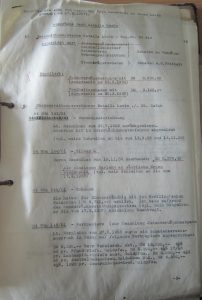
17th September 1957:
Claims for Natalie Levin
Applied for:
- ‘Judenvermoegensabgabe’ = special tax on Jews in the Third Reich. [injury to wealth]
- ‘Sterntraegerschaden’ = ‘star-wearer’s plight’ [injury to freedom]
- Apartment contents
- Silver
- Jewellery
********************************
First World War letter from Kurt Levin to his younger brother Walter Levin (who committed suicide in 1923), describing the tedium of life on the front
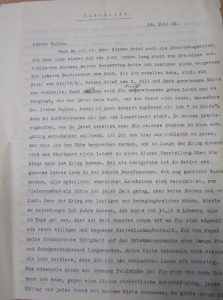
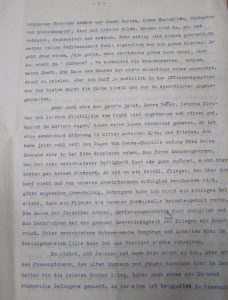
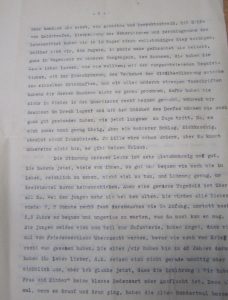
14th July 1915:
“Dear Walter … The last letter I received from you was on the 25th June … I am glad to see that you all seem to be in as good a mood as possible in this time. Especially you, Walter, are being very resilient and tough ‘in the Field’, as you are in a more difficult situation than me and do not lament it. In response to your anxieties over what job to do or what to study now, is hard to advise from here … as long as the war continues, it is not easy to predict a post-war future and what it will look like. At least for me anyway, there is just a big empty hole in my brain in place of thoughts on careers etc … if the war was at least a bit more fun and active, as far as I’m concerned it can last a hundred years … For months now the war has been for me a cheap and comfortable holiday … due to my French occupation I have been excused from many duties. My hosts treat me better than I deserve, because I am often mean because of bad moods. The miserable food from the ‘Feldkueche’ (war canteen) is now just a side dish for me as I eat lunch and dinner with my hosts every day. They now have the most delicious fresh vegetables in their garden and potatoes, rhubarb and cherry compote, eggs and fresh milk. There are books: good and bad ones, French and German. We often play chess. Happily, the only thing that is really missing is a good piano. There is actually one, a good one, but it is in the ‘Chateau’, where my bosses live. The lady of the house has already offered me to play on it but I am of course only allowed in the Officers’ quarters from the back of the house through the kitchen, and only to discuss work-related matters.
But it’s fine without (a piano) too. It is good weather, we only need light clothing and boots … you can tell mother that the ones she sent fit me very well and really lifted my spirits. It is a very peculiar atmosphere, in the time just between war and peace … we can’t even hear the distant canon-fire anymore … our shooting has not once, as far as I can tell, even shot down one of the planes that fly overhead …
You see, we don’t have anything to do with the enemy over here. However we did have a war last week with the women, old men and young boys of the village … it was a type of revolution, more strange than serious: a work and respect strike. We staged a siege on them for ten days with taxes, arrest of important people and confiscation of food. And so now us Bavarians are more feared than loved down in the village.
The atmosphere amongst the troops is very good. Many of them have never had it as good as this: lots to eat, not much to do, and enough people to send three quarters of them home. But a noticeable impatience permeates: it is more present in the young ones than the old. They would all rather have just two or three months more of intensive war like in the beginning and then have it over than sit comfortably and wait for two or three years. The young ones often sign up to the infantry – they are scared, that they will be surprised with the end of the war before they even have a chance to see anything. The old ones – we have men up to forty-five years old – value their lives a bit more and sit quietly. The phrase ‘I have a wife and kids’ is not seen as an excuse though or cowardice, as we all know that when the war was in its most critical stages, the old ones were braver and held out a lot better than the sixteen year-olds. Three days and nights without any proper sleep, through thick mud in Winter … no uncomfortable situation could phase these veterans.”
2 thoughts on “The Levins”